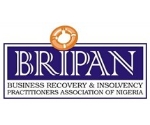Key Highlights Of The New Tax Laws In Nigeria Part 2: What Individuals Need To Know
On June 26, 2025, the President of Nigeria signed into law four major tax reform bills namely The Nigeria Tax Act; The Nigeria Tax Administration Act; The Nigeria Revenue Service Act, and The Joint Revenue Board Act. These reforms mark a major overhaul of Nigeria’s tax system, designed to ease compliance for taxpayers, boost government revenue, and bring the country’s tax practices in line with international standards
In Part 1, we examined how these laws affect businesses, and in this Part, we would examine how these law affects individuals. Below are the notable changes for individuals:
- New Personal Income Tax Brackets:
The percentage of annual income payable as Personal Income Tax has been updated as follows: First ₦800,000 or less– 0%, ₦2.2M or less– 15%, ₦9M or less– 18%, ₦13M or less – 21%, ₦25M or less – 23%, above ₦50M – 25%.
- Clear Definition of Tax Residency for Individuals:
The Nigeria Tax Act provides a clear definition of who qualifies as a resident in Nigeria, which helps remove previous confusion. Once deemed resident in Nigeria and the income earned is not taxable in the country where the employee works, Personal Income Tax would apply for individuals resident in Nigeria but working for companies outside of Nigeria or earning outside of Nigeria. An individual is now considered resident in Nigeria if any of the following applies: (a)they are domiciled in Nigeria; (b) they have a permanent home available for personal use in Nigeria; (c) Nigeria is their habitual place of residence; (d) they have strong economic and immediate family ties in Nigeria; (e) they stay in Nigeria for at least 183 days within a 12-month period (including holidays and temporary absences); (f) they serve as a diplomat or diplomatic agent of Nigeria abroad. Once classified as a resident, PIT will apply to their worldwide income as reflected in no.1 above.
- Expanded VAT Exemption List:
The Nigeria Tax Act widens the list of items exempt from Value Added Tax (VAT) to ease the cost of living and improve access to essential services. Exempt items now include basic foodstuffs, pharmaceuticals, medical equipment and services, electricity, tuition fees, educational materials, and non-oil exports.
- Income Tax Relief on Rent:
The Nigeria Tax Act introduces a Rent Relief Allowance of ₦200,000 or 20% of annual rent paid (whichever is lower), available only to individuals who pay rent. This marks a shift from the previous system, where broader categories of taxpayers could claim relief. Now, landlords living in their own homes, retirees, or individuals who have self-built houses are no longer eligible. Likewise, employees living with parents or relatives, a common reality in Nigeria, may also be excluded, since they do not incur rental expenses.
- Clarification on Responsibility for Payment of Stamp Duty:
Every purchaser of land or property, any recipient of a paid service, or any person receiving security in a transaction involving a written instrument must ensure that the instrument is stamped within 30 days of its execution and that the appropriate stamp duty is paid. This clarification helps to resolve previous uncertainties regarding who is responsible for paying stamp duty in such transactions.
- Creation of the Tax Ombuds Office:
A newly established Tax Ombuds Office will act as an independent body for resolving disputes between taxpayers and tax authorities. Its goal is to promote fairness, equity, transparency, and accountability in the administration of tax matters.
- Tougher Penalties for Tax Non-Compliance
Under the new tax laws, penalties have been significantly increased. Failure to file tax returns now attracts a fine of ₦100,000 in the first month, and ₦50,000 for every additional month of default. In addition, a ₦5 million penalty applies to anyone who awards a contract to an individual not registered for tax. - Renaming of the Tax Authority:
The Federal Inland Revenue Service (FIRS) has been renamed to the Nigeria Revenue Service (NRS) to better reflect its expanded national responsibilities.
The revised tax laws represent a significant shift aimed at strengthening Nigeria’s tax framework by enhancing compliance, ensuring greater fairness, and supporting national growth. While these reforms offer clear advantages, they also place new obligations on individuals, making it essential for all taxpayers to understand and adapt to the evolving tax landscape.
Berkeley Legal is a dedicated leading full-service top business law firm in Nigeria. We provide comprehensive and sophisticated range of specialized and personalized legal services that are designed to meet the various needs of a highly diversified local and international businesses.
If you would like to know more about the Key Highlights of the New Tax Laws, please contact info@berkeleylp.com
The information provided in this article is for general informational purposes only and does not constitute legal advice.







